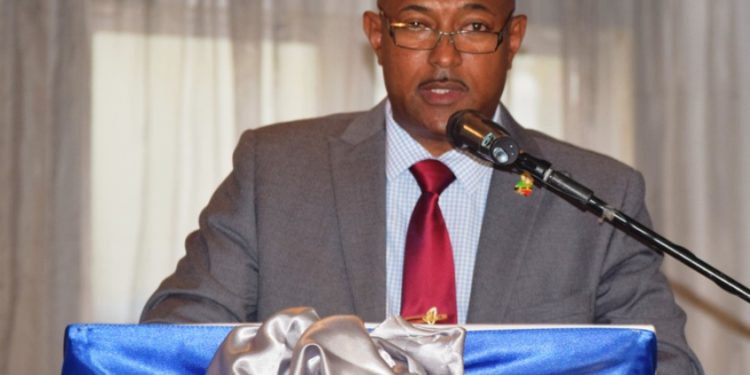Basseterre, St. Kitts, March 16, 2018 (RSCNPF): The High Command of the Royal St. Christopher and Nevis Police Force (RSCNPF) is placing a renewed focus on Community Policing in 2018. In the RSCNPF’s Six-Point Plan of Action to reduce crime and violence in the Federation, Community Engagement is a founding pillar.
Commissioner of Police Ian Queeley believes that Police Officers have an opportunity to make an impact in this area. At the Nevis Awards Ceremony for Constables, he shared his view that one Police Officer can make a difference under the community policing model, where officers are empowered to identify and solve problems proactively.
“Therefore, strengthening bonds and improving communication between law enforcement agencies and the people they serve benefits both officers and the country on a whole,” Commissioner Queeley explained.
He acknowledged that it was not going to be an easy task, but quickly added that a Police Officer needed to have the temperament that allowed him or her to communicate and work along with the public.
“You know, as well as I do, that it won’t be easy. But, notwithstanding the challenges, it is still up to you to be a part of the change that is desperately needed in our communities if we are to make any serious dent in the fight against crime and violence,” the Commissioner said. “But you cannot do so from within the confines of the stations and departments in which you are posted. It requires that you go into the community and that you speak with residents. You must know them and they must know you, and most importantly they must trust you.”
He charged the Officers who were nominated for the Constable of the Year Award to go out to the highways, bi-ways and alleyways to earn the trust that is critically needed to advance the cause of the RSCNPF.
“See yourself as an integral part of the community, and the community as an integral part of meeting the goals of policing.”
Commissioner Queeley concluded by highlighting accountability and leadership as two additional key ingredients that would enhance their performance. “As a Police Office,” he said, “taking responsibility for one’s actions was important for to learn.”









